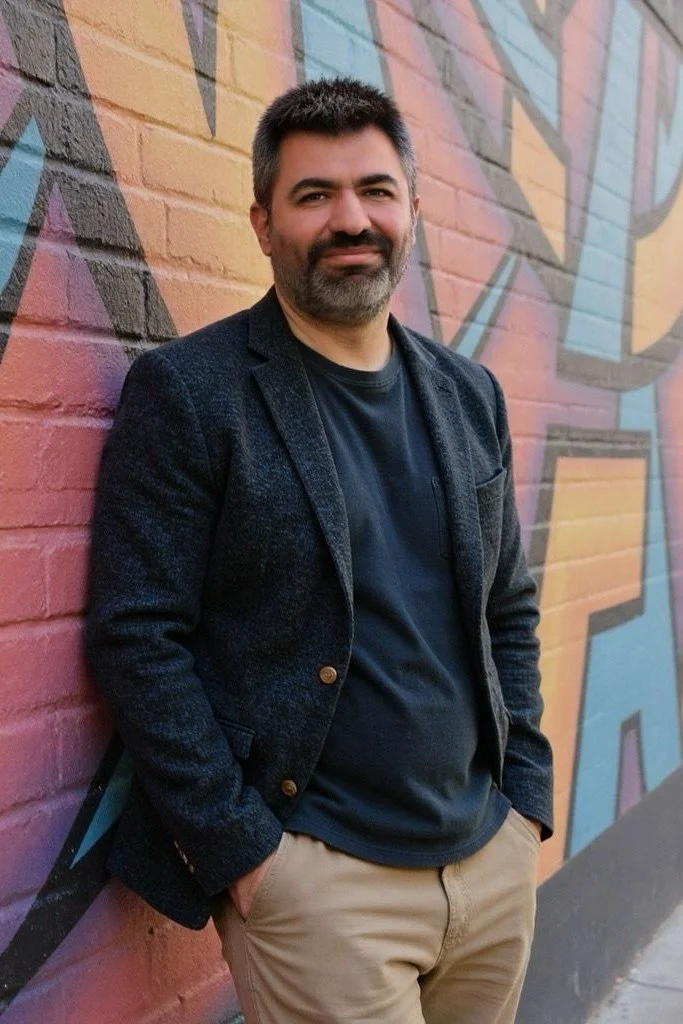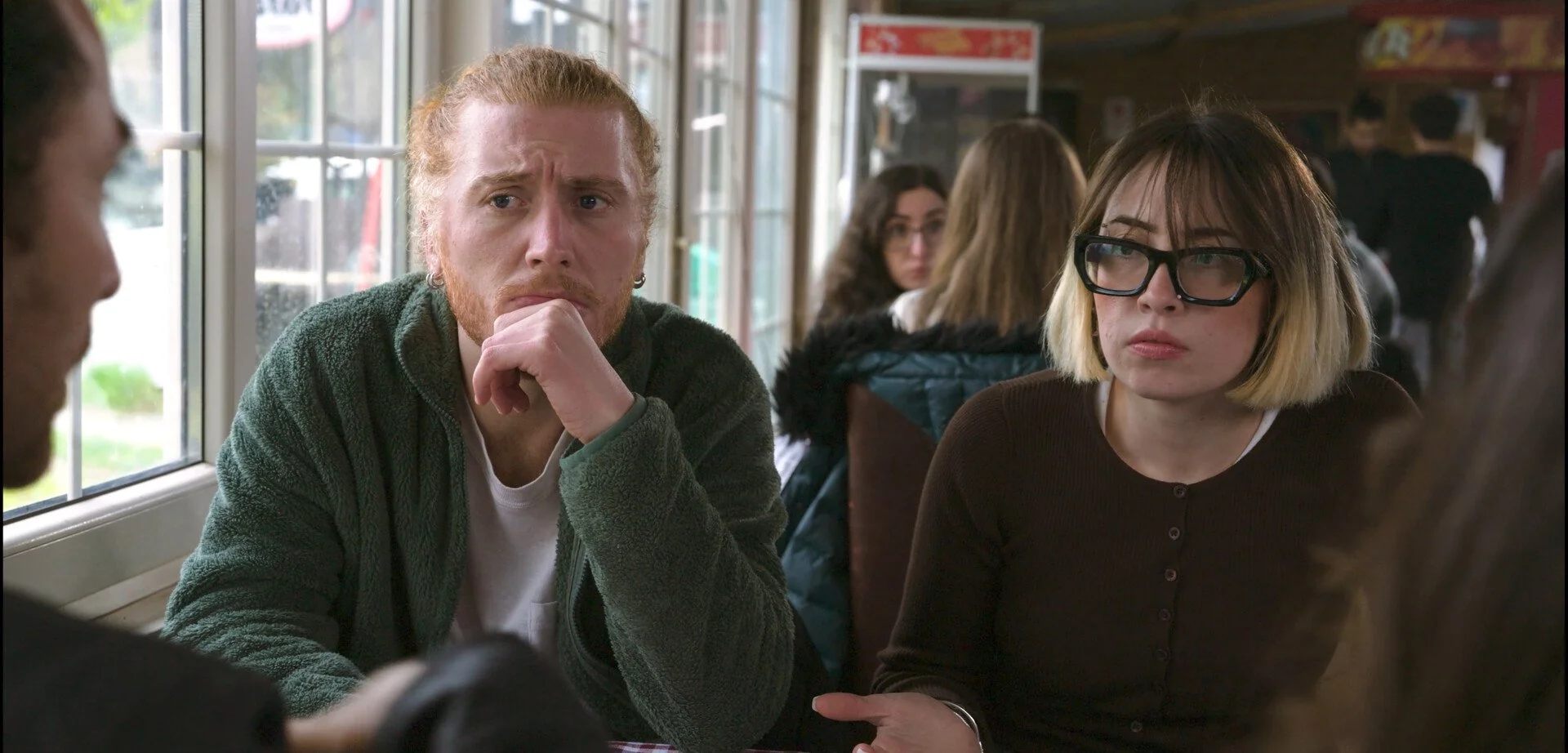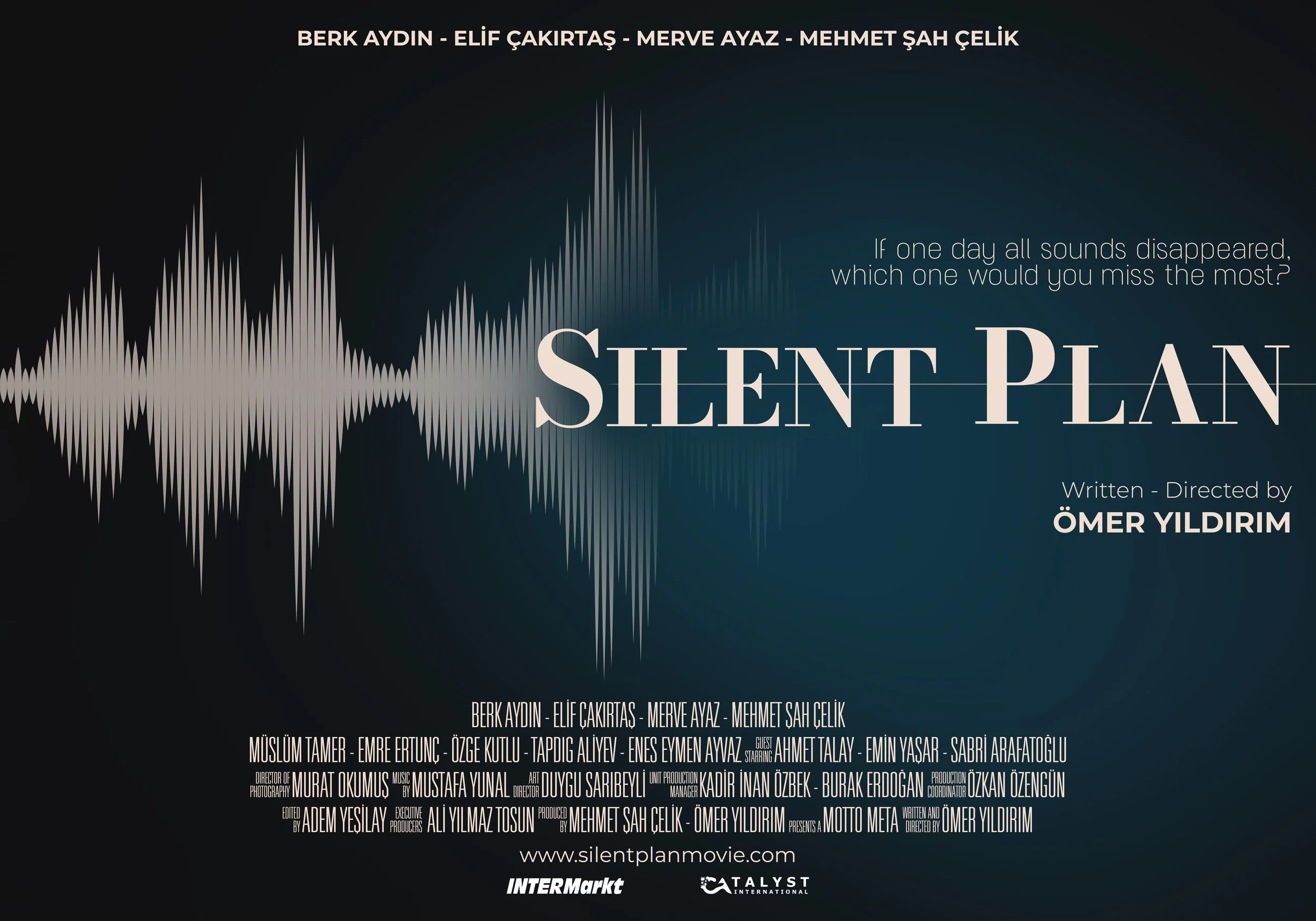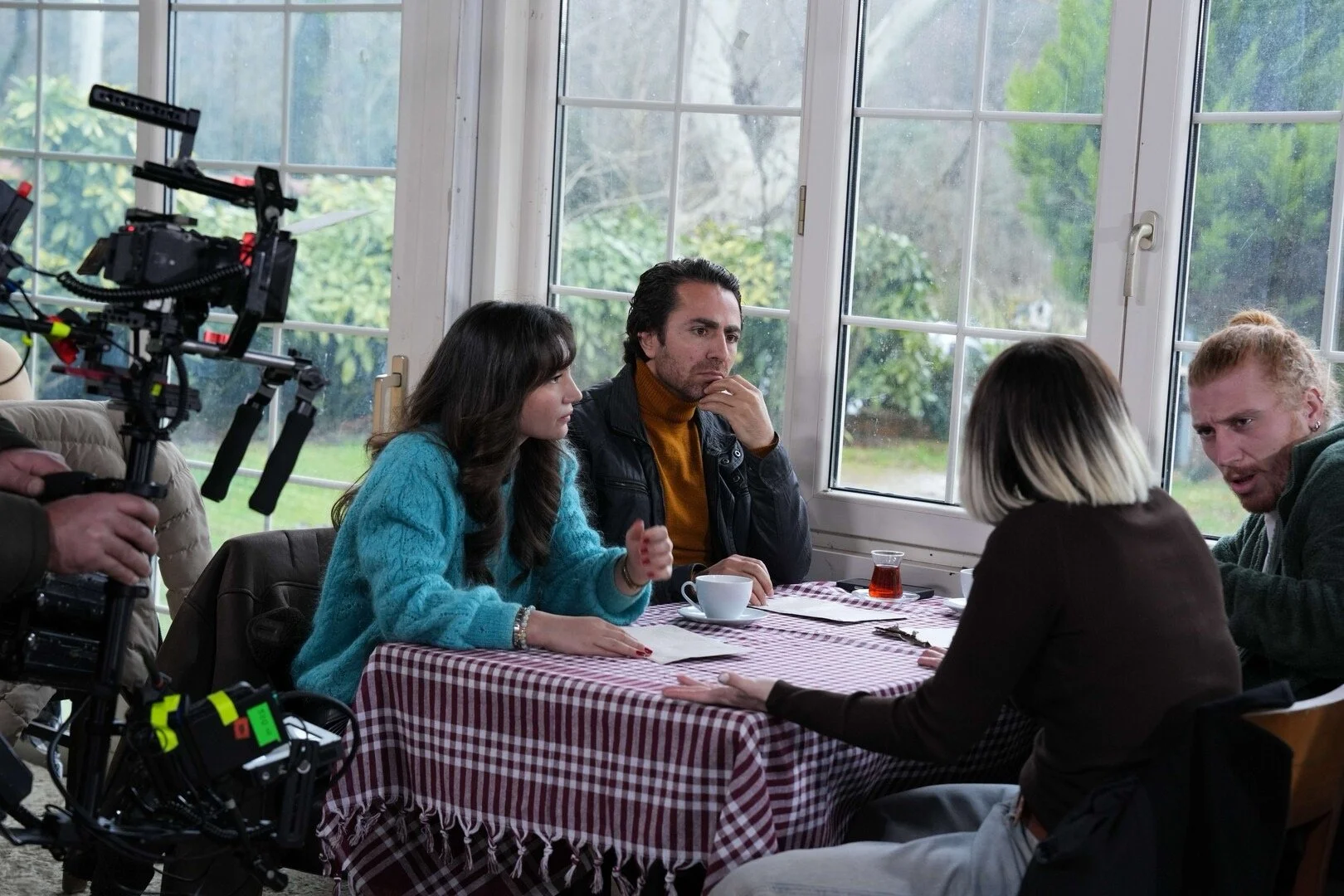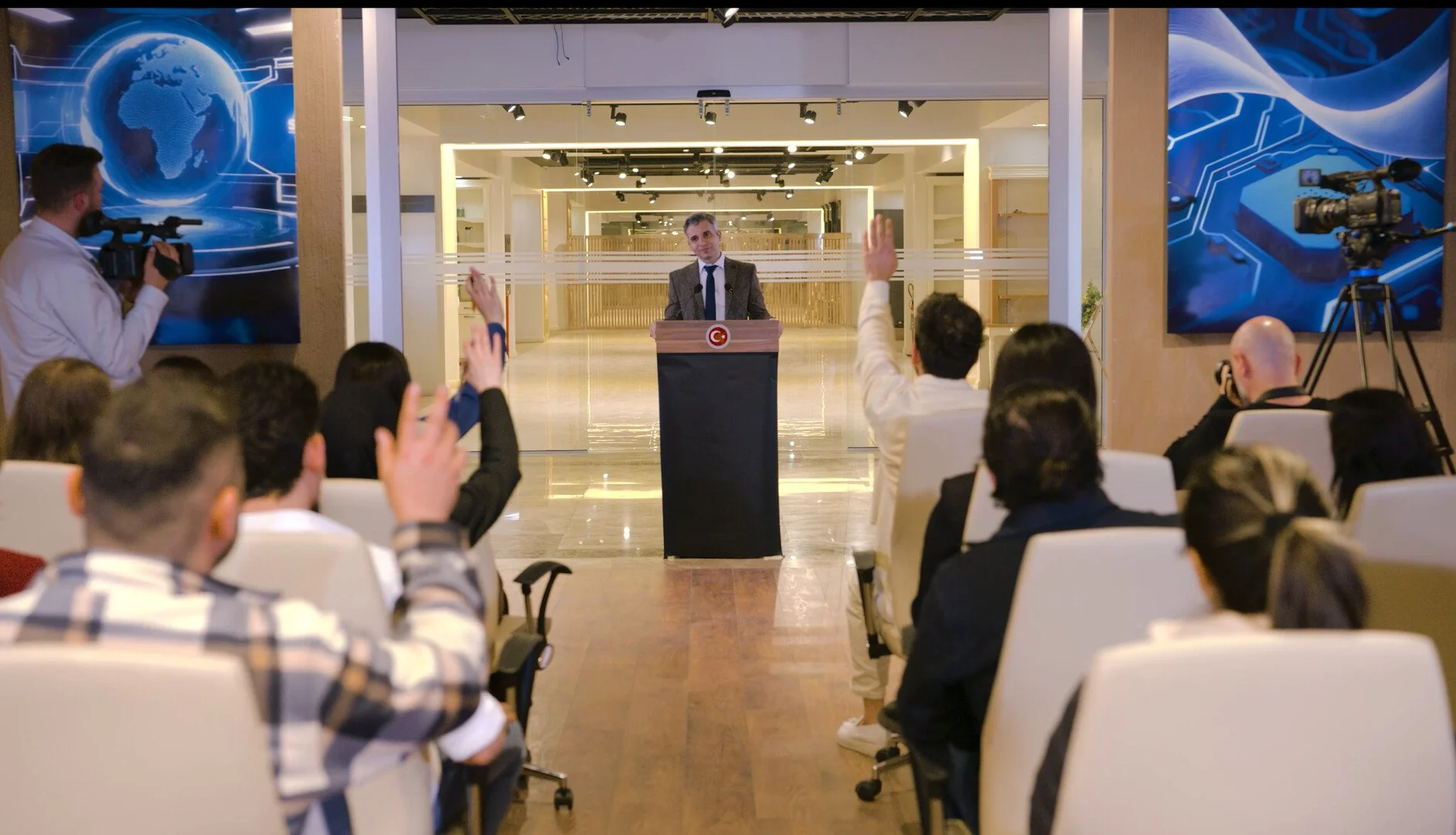Silent Resistance: Omer Yildirim on Voice, Loss, and Belonging
Welcome Omer, we are very excited to have you today with us to discuss about your work.
Who is Omer Yildirim and how did the passion for creating begin?
As a child, the imaginary worlds I created gradually turned into scenes and scripts. My interest in stories and characters never faded; I started writing to express them and acting to bring them to life. I was born in Istanbul, where I completed both my undergraduate and graduate studies in theatre. This narrative journey eventually led me to stage direction, character development, and visual storytelling. My focus on physical expression—on gestures, silences, and glances—naturally evolved into a fascination with cinema. I see filmmaking as a way to reveal emotions that remain unspoken on stage, it’s a tool for expressing what lies beneath the surface. Over the years, I’ve developed numerous stories and projects across different forms and genres. But what ties them all together is this: I don’t aim to show what is unseen—I strive to make the feeling hidden within it emotionally perceptible.
Can you tell us a bit about your previous work?
I have worked extensively in theatre, animation, and education. In theatre, I directed numerous productions for various age groups, focusing on physical expression and character-driven staging. This process shaped an aesthetic that approaches storytelling through the actor’s body and emotional depth. For a period, I worked as a director on animated film projects. This experience helped me refine my understanding of visual rhythm, emotional precision, and narrative economy. I also taught acting and storytelling at different institutions, which deepened my ability to analyze character psychology and internal conflict. Each of these experiences has directly informed my cinematic language. Silent Plan emerged as a reflection of the storytelling techniques I developed across disciplines, anchored in a strong focus on character and emotion.
‘‘Silent Plan’’ is a deeply emotional and thought-provoking film. What inspired you to tell this particular story about sound, silence, and human connection? In your director’s statement, you talk about the longing to hear a loved one’s voice. Was there a personal memory or moment that sparked this theme for you?
At the heart of this film lies a simple yet universal question: “If all sounds disappeared one day, whose voice would you long to hear the most?” The idea was born during a conversation with producer Mehmet Şah Çelik at the Cannes Film Festival in 2024. That question resonated deeply with both of us, and it became the emotional core of the story. In my own life, I’ve met people who could no longer hear a voice they once knew—or who had never heard a loved one’s voice at all. These encounters added an emotional depth to the narrative I wanted to tell. But Silent Plan was never intended to be solely about hearing loss. More than the desire to hear, I wanted to explore the need to be heard. Suppressed emotions, silent resistance, and the weight of unspoken longing… I tried to weave these themes not only through the lens of deafness, but also through the broader idea of social invisibility—hoping to reach a more universal language.
CONVERSATION ABOUT: ''Silent Plan''
The plot has a near-futuristic premise, yet it feels incredibly grounded in human emotion. How did you balance science fiction with intimate storytelling?
In Silent Plan, what interested me wasn’t the technology itself, but its emotional impact on people. The hearing device in the film is merely a tool—the real focus is what it represents to the four deaf young people: years of hope, preparation, and emotional investment. While the premise involves a science fiction element, I built the entire narrative around the characters’ emotional journeys. I wasn’t concerned with imagining the future; I was more interested in what remains suppressed in the silence of the present. I deliberately avoided designing a futuristic world or leaning into a dystopian aesthetic. Instead, I chose familiar, everyday spaces, natural light, and restrained camera work to root the film in a reality that feels immediate and relatable. This intentional simplicity allowed the audience to connect with the characters on a human level—to hear not just the device, but the emotional void it represents.
The twist—what the characters hear is not what they expected—is haunting. Without giving too much away, what does this moment symbolize about memory, longing, and truth?
The voice recordings the characters have kept for years are not just technical data—they carry emotional attachments, memories, dreams, and a sense of belonging. Yet, the voice itself may change over time, drifting away from how it was idealized in memory. This moment questions whether what we long for is a real fragment of the past or a feeling we’ve reshaped in our minds. That turning point in the film reveals the gap between what we hope to hear and what we actually do, confronting the audience with a quiet but unsettling truth. Memory often isn’t about recalling something exactly as it was, but about completing what’s missing. So the characters’ disappointment isn’t just about the technology—it’s about the collapse of the meaning they had assigned to the past. In that scene, I wasn’t aiming to fulfill the audience’s expectations, but to create a moment that would echo in their minds and hearts long after watching.
Merve Ayaz, as both performer and sign language interpreter, played a dual role on and off camera. Can you speak about the collaborative dynamics on set and how inclusivity shaped production? Were there specific moments during filming that made you see the story differently because of the actors’ performances?
Merve Ayaz was one of the foundational figures in this project. As both an actor fluent in sign language and a bridge between team members, she guided everyone on set. Her trust-based relationship with our deaf actors made the communication process not only technically possible, but emotionally grounded. Even when she wasn’t in front of the camera, Merve had to be on set—she was the only person fluent in sign language. It was an exhausting responsibility for her, but also vital to the film. Our deaf actors, Berk Aydın and Elif Çakırtaş, brought unexpected emotional depth to many scenes. It wasn’t just their lines—their gazes, postures, and presence shaped the narrative in profound ways. Each actor contributed personal interpretations to their roles, even in subtle ways, and we embraced all of them. Every choice aligned beautifully with the film’s tone, showing how deeply they connected with the project. At times, I chose to step back and simply observe. This process reminded me that, as a director, reaching emotional truth sometimes requires nothing more than creating space for it to unfold.
How did your background in theater and black light puppetry influence your direction of ‘‘Silent Plan’’ ?
My background in theater—especially my familiarity with physical storytelling—had a direct influence on the visual language of Silent Plan. Silence, body language, and posture became essential tools for conveying emotion, just as they are on stage. In puppetry, especially black light performance, you have to masterfully use the limits of the body and the manipulation of light to guide the audience’s focus. That experience shaped my approach to framing and pacing in the film. While Silent Plan doesn’t feature puppetry or overt theatrical elements, my habit of thinking through scenes spatially helped me design each shot according to a flow of emotion.
In future projects, do you plan to explore similar genre intersections, or are there other genres you're eager to explore ?
Silent Plan showed me that crossing genres can be enriching not only in form but also emotionally. I definitely want to continue exploring hybrid narrative styles. However, I also believe each project demands its own tone. Some stories call for a stripped-down, realistic approach; others work better in a more abstract or stylized world. I’m currently developing two feature film projects. One is a psychological thriller that follows the mental unraveling of an introverted character. The other is set in London and focuses on a migrant’s sense of invisibility in everyday life—it leans more toward grounded realism. I’ve also completed a seven-episode series that takes a fragmented, unconventional approach to storytelling. For me, genre is not a boundary. I let the story define its form based on what it emotionally requires.
What reactions do you hope to elicit from audiences watching your project?
When I watch a film, the first question I ask myself is: “Where did this take me?” I hope Silent Plan leads viewers on a similar internal journey. It doesn’t speak loudly or make grand statements, but it touches quiet breaking points. That’s why I want the audience to carry the characters, the silences, and the questions with them even after the film ends. On one hand, I hope it fosters empathy—especially offering a view into the world of deaf individuals, not from the outside, but from within. On the other, I want the film to be experienced not as a statement about representation, but as a piece of cinema driven by universal emotions. More than anything, I hope viewers come away with a new understanding of silence—not as absence, but as a form of resistance, memory, and presence. In Silent Plan, silence is not something missing; it’s a way of existing.
This marks the conclusion of the interview featuring our esteemed artist, Omer Yildirim. Our community is growing steadily, with a continuous influx of skilled filmmakers and screenwriters joining us. Explore our other interviews, and consider scheduling one for yourself to showcase your creative endeavors.

